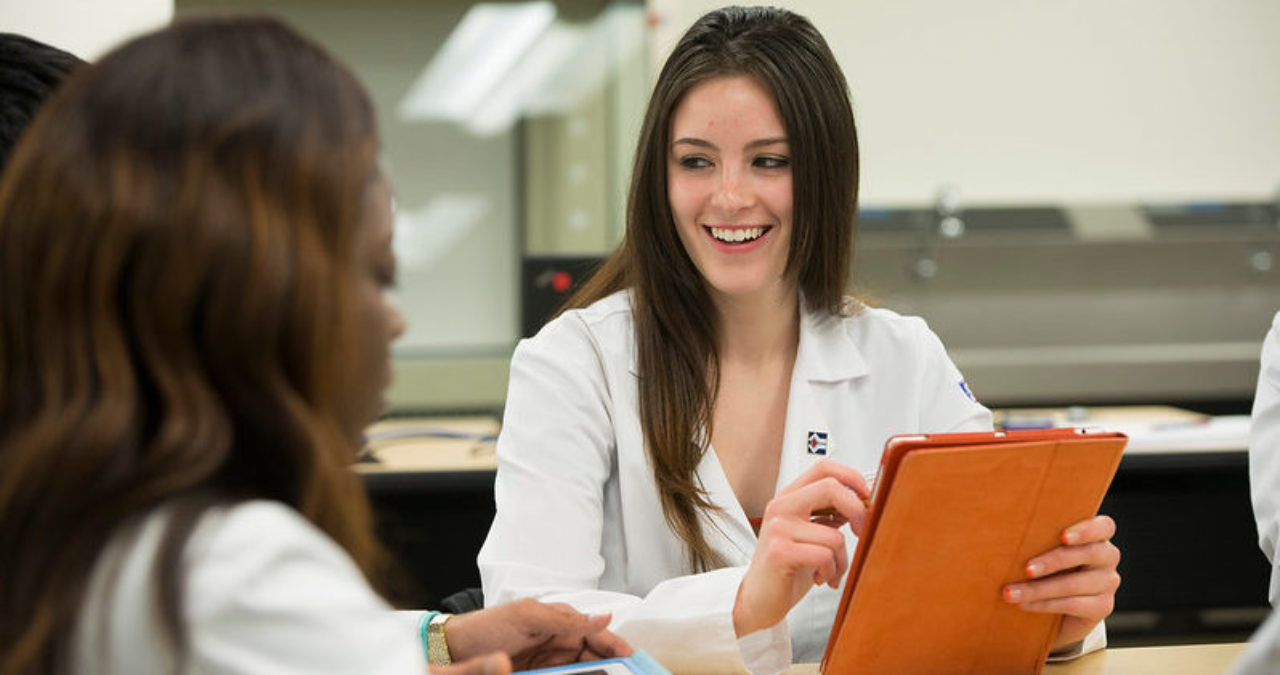Biology BS Veterinary Medicine DVM combined degree

While students can attend any veterinary school after earning a BS in Biology, some students may choose to apply for eight-year program BS in Biology (FDU) and Doctor of Veterinary Medicine with Ross University School of Medicine, St. Kitts and Nevis.
Students are admitted to FDU as incoming freshmen or qualified transfer students. They may apply for the BS degree upon successful completion of six semesters at FDU.
The program prepares students interested in pursuing a Doctor of Veterinary Medicine degree to become successful veterinarians in the United States. The program is an accelerated program that takes a little more than three years. The last three semesters are spent on the campus of one of the U.S. veterinary schools affiliated with Ross University School of Veterinary Medicine. The U.S. Department of Education has certified Ross University School of Veterinary Medicine as an eligible institution for the Title IV U.S. Federal Family Education Loan program.
Admission Requirements
- High school seniors with a high school GPA of 3.25 may apply for admission to the combined degree program.
- All applicants for admission to the combined degree program must satisfy secondary school preparation in English, mathematics, biology, chemistry, and physics.
- The high school GPA and rank in class, along with letters of recommendation from high school teachers, will be of primary importance in evaluating applicants’ credentials.
Qualifying for enrollment at Ross University
Students must meet the following criteria to qualify for admission to the veterinary phase of the program:
- Completion of all FDU curriculum requirements, including the general education requirements and the degree program requirements for the major and all prerequisite courses required for admission at Ross University School of Veterinary Medicine. Students must obtain a GPA of 3.00 or higher in prerequisite courses with no C-, D, or F in any of the courses
- An overall GPA of 3.2 or higher
- A score in the 25th percentile or better in each category of the Graduate Record Examination (GRE)
Program Outcomes for BS Biology
Students majoring in Biology develop the following skills and abilities:
Ability to use the scientific method and understand its strengths and weaknesses: Clearly states a hypothesis; Identifies not only the basics of the issue, but recognizes the nuances of the issue.
Ability to research a biological topic using traditional and computer technology: Provides a thorough and relevant literature review; Considers alternate ways to approach the questions; Ability to read and evaluate professional scientific literature; Demonstrates understanding of the relationship between experiment and theory.
Ability to write and communicate science: Writing enhances the presentation; Writing is consistently well written; Writing communicates clearly using the language of biology; Writing displays an excellent command of writing mechanics; Topics are clearly organized; Topics are covered in-depth; Topics display an abundance of original ideas; APA style is used consistently and accurately without any errors.
Ability to utilize mathematical reasoning and quantitative skills in biology: Analyzes data via graphs, statistics and curve fitting as appropriate; Possess observational and technical skills; Carries out controlled experiments using the proper equipment and safety measurements; Identifies relevant constraints; Collects data carefully and with appropriate precision; Uses initial data to refine the experiment.
Possess major field knowledge: Identifies an appropriate question by using prior knowledge; Ability to successfully compete in biologically related fields; Obtains acceptance into graduate/professional schools or employment in the field.
Degree Plan
NOTE: All students are required to complete the General Education Requirements of their campus in fulfillment of their Bachelor’s degree requirements. [Florham Campus students are required to take SPCH 1107 Fundamentals of Speech and PHIL1440 Bio-Medical Ethics as part of their general education requirements]
Semesters 1 and 2
- BIOL1221, BIOL1222 Biological Diversity and Laboratory
- BIOL1223 Biological Diversity Recitation
- BIOL1233, BIOL1234 Introduction to Molecules, Cells and Genes and Laboratory
- BIOL1235 Molecules, Cells & Genes Recitation
Semesters 3 and 4
- BIOL2200, BIOL2201 Ecology & Field Biology and Laboratory (or)
- MBIO2209, MBIO2219 Introduction to Marine Biology and Laboratory
- BIOL3050, BIOL3051 Molecular Cell Biology & Laboratory
Semesters 5 and 6
Semesters 7 and 8
- BIOL3253, BIOL3254 Comparative Anatomy and Laboratory
- BIOL 3309, BIOL3019 Microbiology and Laboratory
- PHIL1440 Biomedical Ethics
- BIOL4950 Biology Seminar
- BIOL3___/4___ Ecology and Environmental Biology Elective IV and Laboratory
- BIOL3___/4___ Biology Elective V and Laboratory
Cognate Requirements
Semesters 1 and 2
- CHEM1201, CHEM1203 General Chemistry I and Laboratory
- CHEM1202, CHEM1204 General Chemistry II and Laboratory
Semesters 3 and 4
- CHEM2261, CHEM2263 Organic Chemistry I and Laboratory
- CHEM2262, CHEM2264 Organic Chemistry II and Laboratory
Semesters 5 and 6
- PHYS2203 / PHYS2201 University Physics I Lecture and Laboratory
- PHYS2204 / PHYS2202 University Physics II Lecture and Laboratory
- CHEM3281 Biochemistry I
Major Requirements:
- The Program is designed for students who are accepted into professional school (e.g., School of Medicine, Dentistry, Chiropractic, and Optometry) after four years of undergraduate study.
A minimum of 124 credits is required for graduation with BS in Biology.